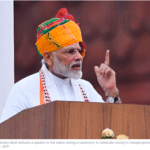In a recent statement, Minister of State for Finance, Dr. Aisha Ghaus Pasha, emphasized that the government is in constant communication with the International Monetary Fund (IMF) and is committed to staying on track with the Fund’s program. Pasha highlighted that the government had faced significant political costs to revive the IMF program and that the Prime Minister is keen on its continuation.
Following her participation in a Senate Standing Committee on Finance meeting chaired by Senator Saleem Mandviwalla, Pasha stated that the government is actively addressing the queries raised by the IMF. She emphasized the government’s desire to remain engaged with the IMF program, given the sacrifices made by the people and the heavy costs incurred.
Pasha further expressed that the upcoming budget will prioritize controlling the substantial budget deficit, as avoiding further loans is crucial to mitigate inflationary pressures. The government aims to sign the agreement with the IMF, with both the Prime Minister and the Finance Minister supporting continued participation in the program.
During the Senate panel meeting, the Minister of State for Finance also discussed the issue of cryptocurrency. Pasha stated that crypto-currencies cannot be allowed in Pakistan, given the country’s recent removal from the Financial Action Task Force (FATF) grey list. The State Bank of Pakistan (SBP) representative informed the committee that the use of crypto-currencies is not permitted in the country.
The committee members deliberated on the potential banning of digital currency and suggested introducing a ban in the upcoming finance bill for 2023-24. Concerns were raised regarding the speculative nature of crypto-currency trading and the absence of significant national-level economic benefits. The SBP official highlighted instances of fraud and bankruptcy associated with cryptocurrency exchanges in other countries.
Additionally, the committee received a briefing from the Federal Board of Revenue (FBR) regarding the Capital Value Tax (CVT) on local and foreign assets. The CVT is levied on foreign assets of resident individuals exceeding Rs. 100 million in value, as well as on motor vehicles exceeding a battery power of 1300 cc/50 kWh. The FBR informed the committee about the collection of CVT since the implementation of the law, amounting to Rs. 3,194 million and Rs. 6,045 million from foreign assets.
The meeting also discussed the shift in tax policy, highlighting that direct tax collections, including income tax and CVT, have surpassed individual indirect taxes for the first time. The committee called for an in-camera meeting to receive a detailed briefing on various tax regimes and their implementation mechanisms.














